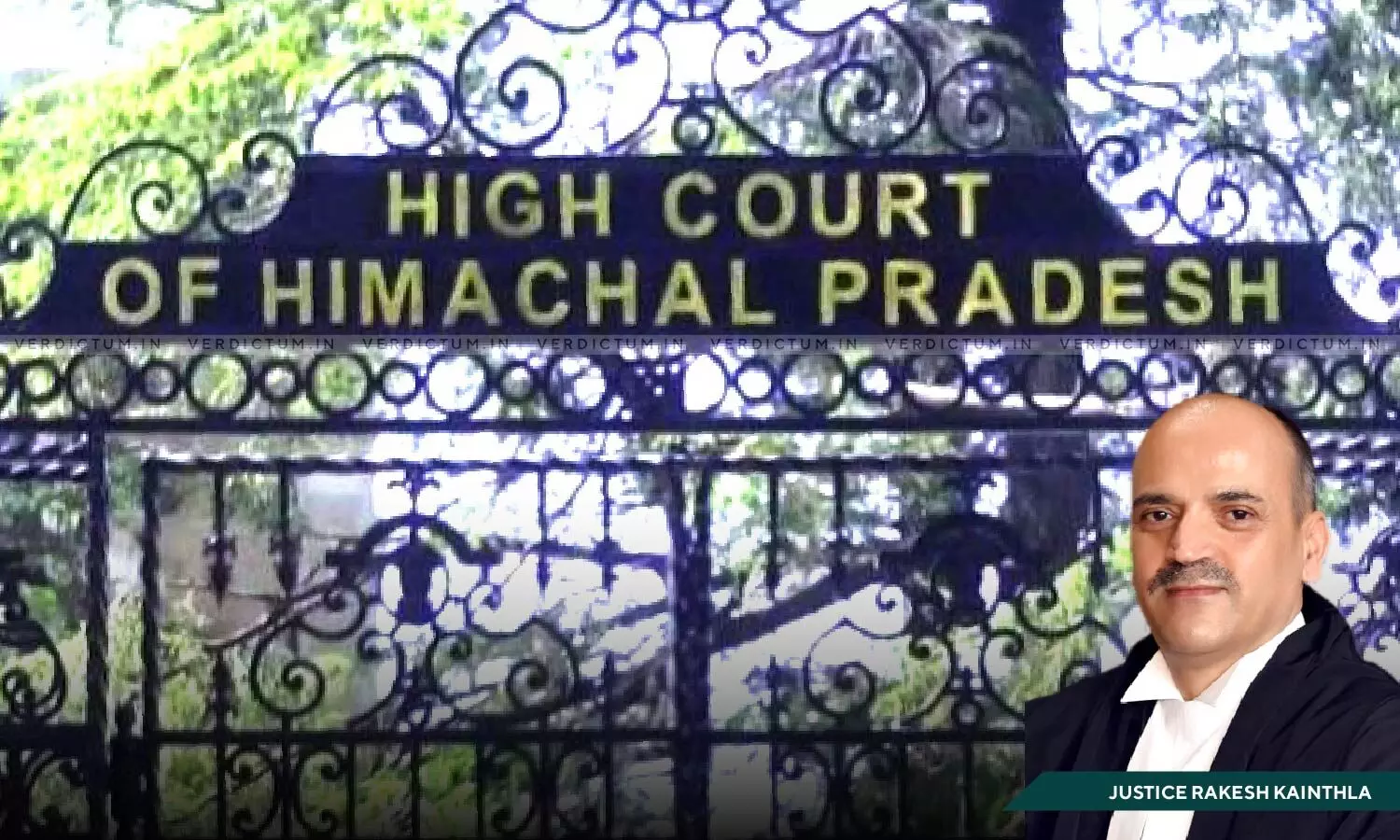
Justice Rakesh Kainthla, Himachal Pradesh High Court
Taxi Driver Cannot Be Prosecuted Merely Because Contraband Was Recovered From His Vehicle: Himachal Pradesh High Court Grants Bail To NDPS Accused
 |
|The Court noted that the taxi driver had no knowledge of the contraband and observed that his conduct at the time of the seizure did not indicate any criminal intent.
The Himachal Pradesh High Court has granted bail to a man arrested under the Narcotic Drugs and Psychotropic Substances Act, holding that there was no prima facie material to connect him with the offence merely because he was driving the vehicle from which contraband was recovered.
A Single Bench of Justice Rakesh Kainthla observed, “…circumstances do not show that the petitioner had any knowledge about the possession of the charas. He did not try to speed away after the police signalled him to stop the vehicle; rather, he stopped the vehicle. He produced the documents, as any driver would do. The status report does not show that the petitioner behaved abnormally in any manner.”
The Court explained, “It was laid down by the Hon’ble Supreme Court in Sri Shankar Dongarisaheb Bhosale Vs. State of Karnataka…that when the contraband was not hidden in the taxi but was visible, the taxi driver cannot be convicted.”
Senior Advocate Ajay Kochhar appeared for the Petitioner, while Additional Advocate General Lokender Kutlehria represented the Respondent.
Brief Facts
The Petitioner is a commercial taxi driver. While driving two passengers, the vehicle was stopped by the police during a routine nakabandi check. During inspection, one of the passengers seated beside the Petitioner attempted to conceal a bag. Upon questioning, he failed to provide any explanation. A search of the bag led to the recovery of 1.511 kilograms of charas. All three occupants of the vehicle, including the Petitioner, were arrested.
It was submitted that the Petitioner had no knowledge of the contents of the bag and was merely discharging his professional duty. He contended that he had no prior criminal record, and that the police had not found any evidence linking him to the contraband by way of call records, financial transactions, or any other form of communication with the co-accused. He also submitted that the grounds of arrest were not communicated to him.
Reasoning of the Court
The Court examined the conduct of the Petitioner at the time of the police interception and found that his behaviour was consistent with that of a person unaware of any illegal activity. He complied with directions, stopped the vehicle when signaled, and furnished the necessary documents. The Court noted, “These circumstances do not show that the petitioner had any knowledge about the possession of the charas…He did not try to speed away after the police signalled him to stop the vehicle; rather, he stopped the vehicle. He produced the documents, as any driver would do.”
The Bench also noted that the police status report did not contain any material that would suggest that the Petitioner behaved abnormally.
The Court referred to the decision of the Relying on the judgment of the Supreme Court in Sri Shankar Dongarisaheb Bhosale v. State of Karnataka (2017), wherein it had been held that that when the contraband was not hidden in the taxi but was visible, the taxi driver cannot be convicted.
The Court also examined the status report and found no prima facie connection between the Petitioner and the co-accused and observed, “The status report does not show that the petitioner was in touch with the co-accused or that any money was transferred from the petitioner’s account to the account of the co-accused.”
The Court observed that there was insufficient material at this stage to prima facie connect the Petitioner with the commission of the crime, and further recorded that the Petitioner had no criminal antecedents.
Regarding the Petitioner’s contention that he was not informed of the grounds of arrest, the Court took judicial notice of the fact that the issue is under consideration by the Supreme Court. It held, “It would be improper for this Court to go into this question regarding the supply of grounds of arrest to the petitioner involved in a case arising out of the NDPS Act, especially when the accused is entitled to bail on merits, and the adjudication of this question will not help him in getting the bail; hence, this question is left open.”
Accordingly, the Court allowed the petition and held that the Petitioner was entitled to bail, subject to conditions.
The Court clarified that the observations made in the order are confined to the present bail application and shall have no bearing on the merits of the case.
Cause Title: Amar Nath v. State of Himachal Pradesh (Neutral Citation: 2025:HHC:22851)
Appearance
Petitioner: Senior Advocate Ajay Kochhar; Advocate Varun Chauhan
Respondent: Additional Advocate General Lokender Kutlehria